Clint Eastwood, still active at 94, can’t help but be haunted by the weight of his own legend—first as a timeless movie star and then as an unstoppable director. Nothing Eastwood has conceived artistically in recent years can diminish his legacy, which includes Unforgiven, The Bridges of Madison County, Million Dollar Baby, and Letters from Iwo Jima, to name a few, despite recent failures that might discredit others. (The 15:17 to Paris is probably the worst, most inept movie by an acclaimed director this century.) Yet, it’s a pleasant surprise to once again, and without many caveats, recommend an Eastwood-directed film that’s solid as adult entertainment, emotionally effective in its moral dilemmas, and narratively immersive, like Juror #2. It also marks his 40th film as a director—what a landmark,
Of course, enthusiasm should not turn into overselling. The courtroom drama examines the guilty conscience of a juror, Justin Kemp (Nicholas Hoult), first introduced as a family man with a lovely, pregnant wife (Zoey Deutch), who is currently in a good place after overcoming difficulties—he’s four years sober. His biggest concern is the time he’ll lose serving as a juror in a homicide case while his wife is due to give birth any day. To complicate matters further, her pregnancy is classified as high-risk.
Set in Savannah, Georgia, with a solid script by Jonathan Abrams, the drama explores an individual’s willingness to do what’s right and examines how justice systems can be fallible and imperfectly designed. As the titular juror, Justin listens to the case against James (Gabriel Basso), a former gang member accused of murdering his girlfriend, Kendall (Francesca Eastwood), after a heated argument in a bar. Then Justin remembers: On that rainy night, he was at the same bar, on the verge of drinking a shot he ordered but ultimately left untouched—his wife had just lost a twin pregnancy. Driving home, he was distracted by an incoming call on his cell phone and accidentally hit something on the road, which he assumed was a deer. Now, Justin realizes that the man about to be convicted with a life sentence is innocent. Should he turn himself in? Would anyone believe he wasn’t driving drunk, given his prior DUI? Isn’t James still a “bad apple” pretending to be reformed?
Justin’s guilty conscience beats louder as the trial progresses. As a juror, he immediately challenges the unanimous guilty verdict of the others, raising questions to try to declare James innocent—without revealing his own involvement in the case. Hoult, who has mostly been cast in genre roles involving heavy makeup (Mad Max: Fury Road, Renfield) and has had few chances to showcase his range (except for The Great), makes full use of his star quality here. He even echoes a young Eastwood at times, though he’s more like a taller version of Tom Cruise. Hoult needed a director steeped in classic cinema to unlock his potential, and Eastwood does just that.
Defense attorney Erick Resnick (Chris Messina) believes in his client’s innocence but faces tough opposition from Faith Killebrew (Toni Collette), a district attorney in the middle of an election campaign, for whom winning this case is vital. There’s no hard evidence contradicting a guilty verdict, and many jurors believe the defendant represents a societal threat if exonerated, despite James’s claims of reform and regret. Because most jurors remain unconvinced by his testimony, Justin begins planting seeds of doubt, aided by Harold (J.K. Simmons), an ex-detective. Harold is the film’s closest equivalent to Henry Fonda’s character in 12 Angry Men, a reference this film can’t avoid.
Broad-stroke character portrayals add depth to the jury room dynamics: a jury president (Leslie Bibb) concerned that her third jury duty could end in another mistrial; a man (Cedric Yarbrough) determined never to consider the defendant innocent because of his gang ties; a true-crime podcast addict (Zedra Avradopoulos) living out her fantasy of being an “expert.” Kudos to the casting director for assembling a strong ensemble beyond the big names.
For all the tough questions the film raises, even tougher answers must be found. Ultimately, the American judicial system has no indisputable solutions and is deeply flawed, even when everything seems clear. This depth, expressed with simplicity, is exactly what we expect from Eastwood, though he stretches the resolution a bit longer than some audience members might tolerate. Still, he remains the last bastion of classicism in cinema. It may have taken him a few movies to get back on track, but Juror #2 reminds us of his mastery of direct, unadorned storytelling that remains visually compelling. Eastwood can ride into the sunset—or perhaps not just yet. He has made at least one unimpeachably good movie this decade.

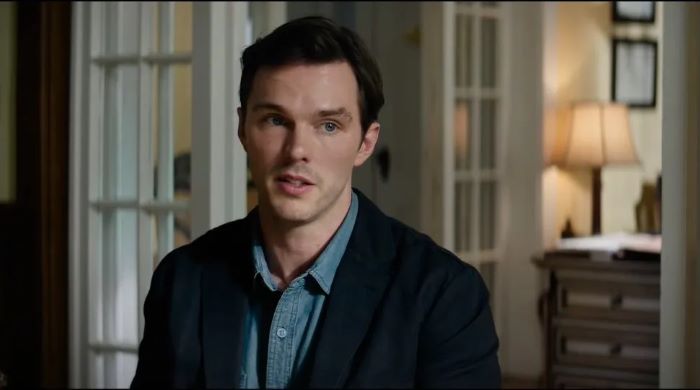
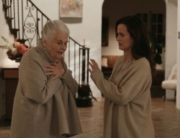
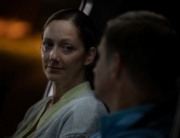
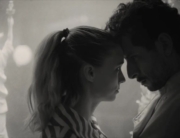
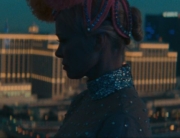











Leave A Comment